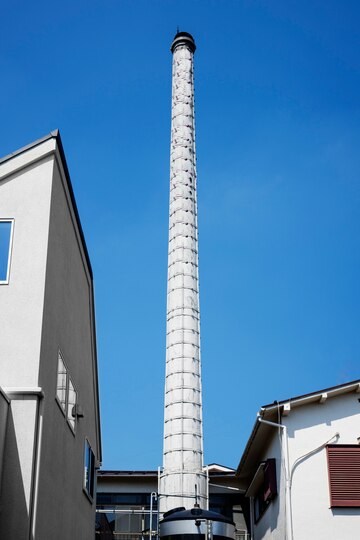The Role Of Maximizing Cooling Tower Water Treatment Performance
Effective water treatment is crucial for maximizing cooling tower performance by addressing issues like scale, corrosion, and biological contamination. Proper treatment ensures optimal water quality, enhancing heat transfer efficiency and reducing energy consumption. By preventing scale buildup and corrosion, water treatment prolongs the lifespan of cooling tower components and minimizes maintenance costs. Additionally, controlling biological contaminants safeguards against harmful pathogens and biofilm formation. Advanced technologies and a balanced approach combining chemical and physical methods are essential for maintaining reliable, efficient, and sustainable cooling tower operations.
Introduction To Cooling Tower Water Treatment
Cooling tower water treatment is a critical process for maintaining the efficiency and longevity of cooling systems used in various industries. These towers play a pivotal role in regulating temperature by dissipating heat from machinery and processes. Effective water treatment ensures that the cooling tower operates efficiently, minimizes maintenance costs, and prevents downtime caused by issues such as scaling, corrosion, and biological growth. By implementing a comprehensive water treatment program, industries can achieve optimal cooling performance and extend the lifespan of their equipment.
Key Challenges In Cooling Tower Water Treatment Systems
Cooling tower water systems face several challenges that can impede their performance and efficiency. One of the primary issues is the formation of scale, which occurs when minerals in the water precipitate and adhere to surfaces within the system. This reduces heat transfer efficiency and can lead to overheating. Corrosion is another significant challenge, as it can weaken the structural integrity of the tower and its components. Additionally, biological contaminants such as algae and bacteria can thrive in the warm, moist environment of cooling towers, leading to biofilm formation and potentially harmful outbreaks if not properly managed.
The Impact Of Water Quality On Cooling Tower Efficiency
Water quality has a direct impact on the efficiency and effectiveness of cooling tower operations. Poor water quality can lead to the accumulation of impurities, which in turn can cause scaling, fouling, and corrosion. These issues reduce the efficiency of heat exchange processes, resulting in increased energy consumption and operational costs. High-quality water treatment ensures that the water used in cooling towers is free from harmful contaminants, thereby maintaining optimal thermal performance and reducing the need for frequent maintenance and repairs.
Scale And Corrosion: Major Threats To Cooling Towers
Scale and corrosion are two of the most significant threats to the performance and longevity of cooling towers. Scale, typically composed of calcium carbonate and other minerals, forms hard deposits on heat exchange surfaces, reducing their efficiency and increasing energy consumption. Corrosion, on the other hand, involves the gradual degradation of metal components due to chemical reactions with water and dissolved gases. This can lead to leaks, structural damage, and ultimately system failure. Effective Cooling Tower Water T
reatment strategies are essential to prevent these issues, ensuring that cooling towers operate reliably and efficiently.
Biological Contaminants: Detection And Prevention
Biological contaminants such as bacteria, algae, and fungi can pose serious risks to cooling tower systems. These microorganisms thrive in the warm, nutrient-rich environment of cooling towers, leading to the formation of biofilms on surfaces. Biofilms can reduce heat transfer efficiency, clog water distribution systems, and create an environment conducive to the proliferation of harmful pathogens such as Legionella. Regular monitoring and maintenance, along with the use of biocides and other treatment methods, are crucial for detecting and preventing biological contamination in cooling towers, thereby ensuring safe and efficient operation.
Advanced Water Treatment Technologies For Cooling Towers
Advancements in water treatment technologies have significantly improved the management of Cooling Tower Water Treatment systems. Modern approaches include the use of filtration systems to remove suspended solids, chemical treatment to control scaling and corrosion, and ultraviolet (UV) disinfection to eliminate biological contaminants. Additionally, advanced monitoring and control systems enable real-time tracking of water quality parameters, allowing for timely adjustments to treatment protocols. These technologies not only enhance the efficiency and reliability of cooling towers but also contribute to environmental sustainability by reducing water and chemical usage.
Chemical Vs. Physical Water Treatment Methods
Chemical and physical water treatment methods each offer unique benefits for managing cooling tower systems. Chemical treatments, such as the addition of scale inhibitors, corrosion inhibitors, and biocides, are effective at controlling specific issues and maintaining water quality. However, they can involve the use of hazardous substances and require careful handling. Physical methods, including filtration, UV disinfection, and magnetic water treatment, offer environmentally friendly alternatives that reduce the reliance on chemicals. Both approaches can be integrated into a comprehensive water treatment program to address the diverse challenges faced by cooling tower systems.
Conclusion
Effective water treatment is essential for maximizing the performance and longevity of cooling tower systems. By addressing key challenges such as scale, corrosion, and biological contamination, industries can ensure that their Cooling Tower Water Treatment operate efficiently and reliably. Advanced water treatment technologies and a combination of chemical and physical methods provide robust solutions for maintaining optimal water quality. Ultimately, investing in comprehensive water treatment strategies leads to enhanced cooling tower performance, reduced operational costs, and prolonged equipment lifespan, contributing to the overall sustainability and productivity of industrial processes.
Resource URL:
https://en.wikipedia.org/wiki/Cooling_tower

Fran Peters is a dedicated writer specializing in health and medical content. With a background in healthcare and a passion for helping others lead healthier lives, Fran brings a wealth of knowledge and expertise to her writing.















Post Comment